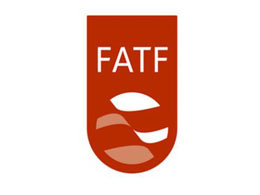
Financial Watchdog FATF Examines Risks of Digital Currencies
The Financial Action Task Force (FATF) has published a paper looking into the money laundering and terrorism financing risks involved with digital currencies. FATF is an independent intergovernmental organisation tasked with developing policies to combat money laundering (AML) and terrorism financing (CTF). The organisation further maintains a blacklist, which highlights jurisdictions that refuse to address these issues. In addition, the FATF issues recommendations for AML and CFT, which must be followed in order to stay off the blacklist. The FATF paper, titled 'Virtual Currencies - Key....
Related News
The Financial Action Task Force (FATF) has recommended closer monitoring of digital currency exchanges and gateways to counter money laundering and terrorism financing. FATF published its 'Guidance for a risk-based approach to virtual currencies' at a plenary meeting held this week in Brisbane. The 48-page document acknowledges that digital currencies carry several economic benefits such as decreased transaction costs, financial inclusion for those lacking access to banking services and the facilitation of microtransactions. However, they also carry risks of money laundering and terrorist....
The Financial Action Task Force [on Money Laundering], also known as FATF, has released a new report focusing on virtual currencies. Specifically, the report covers "key definitions" and "potential AML/CFT risks" of these emerging payment methods. The FATF conducted research into the characteristics of virtual currencies to make a preliminary assessment of the ML/TF risk associated with this payment method. An important step in assessing the risks and developing an appropriate response, is to have a clear understanding of the various types of virtual currencies and how they are controlled....
The independent intergovernmental organization FATF or The Financial Action Task Force (on Money Laundering), headquartered in Paris, has published a report as a guide for using digital currencies titled "Guidance for a Risk-Based Approach to Virtual Currencies." It includes benefits of digital currencies as well as potential risks of money laundering and terror financing. The report is essentially the conclusion to the recent meeting held at Brisbane that was participated by 34 member nations and two regional organizations - the European Union and the Gulf Co-operation Council - to....
The Financial Action Task Force (FATF) has released updated draft crypto guidelines. A review of the changes highlights recommendations to increase the mass surveillance of users. The greatest fear of regulatory overreach is that it will stifle innovation and deter privacy-conscious investors from participating. Crypto Under The Spotlight FATF is a global financial watchdog that […]
This article has been updated to include responses to the EBA by the Bitcoin Foundation and the UK Digital Currency Association. The European Banking Authority (EBA) has published an 'opinion' warning financial institutions to stay away from digital currencies until the industry is regulated. In the document, which was addressed to the EU council, European Commission and European Parliament, the EBA set out new requirements for the regulation of digital currencies and also instructed financial institutions not to buy, hold or sell digital currencies until new rules are in place. The EU....





